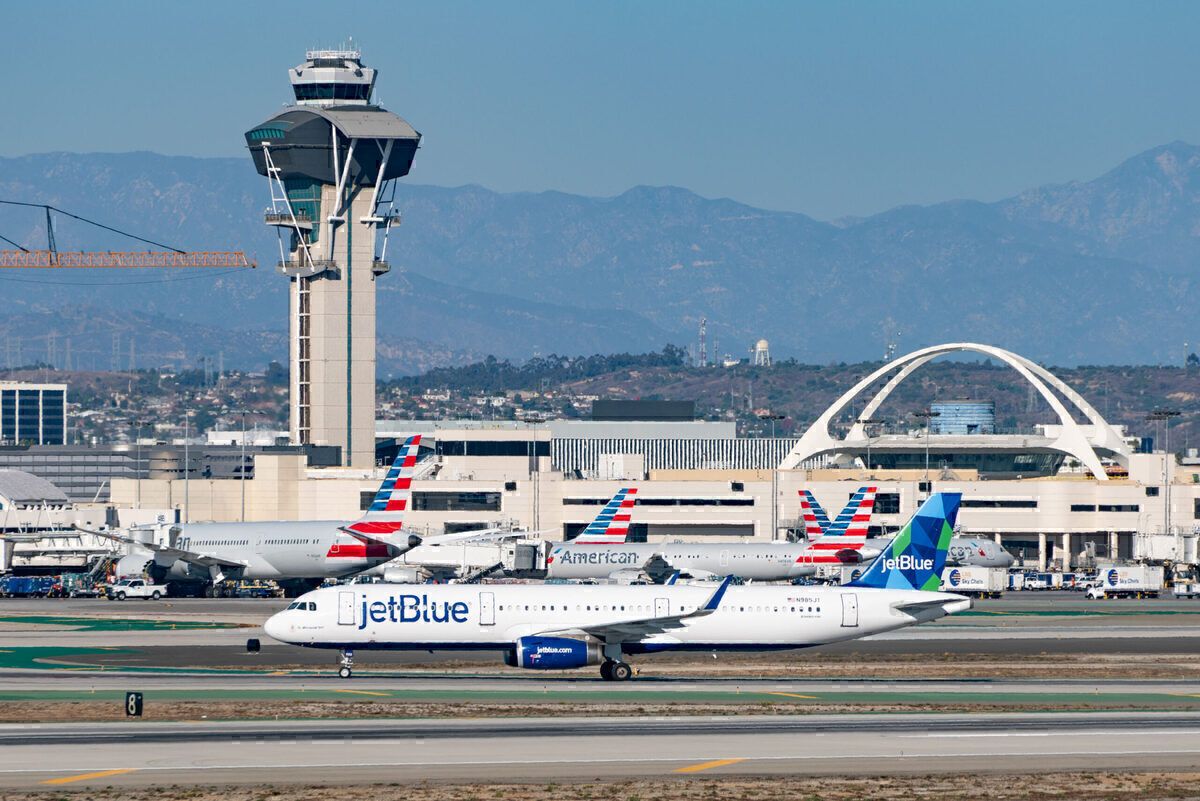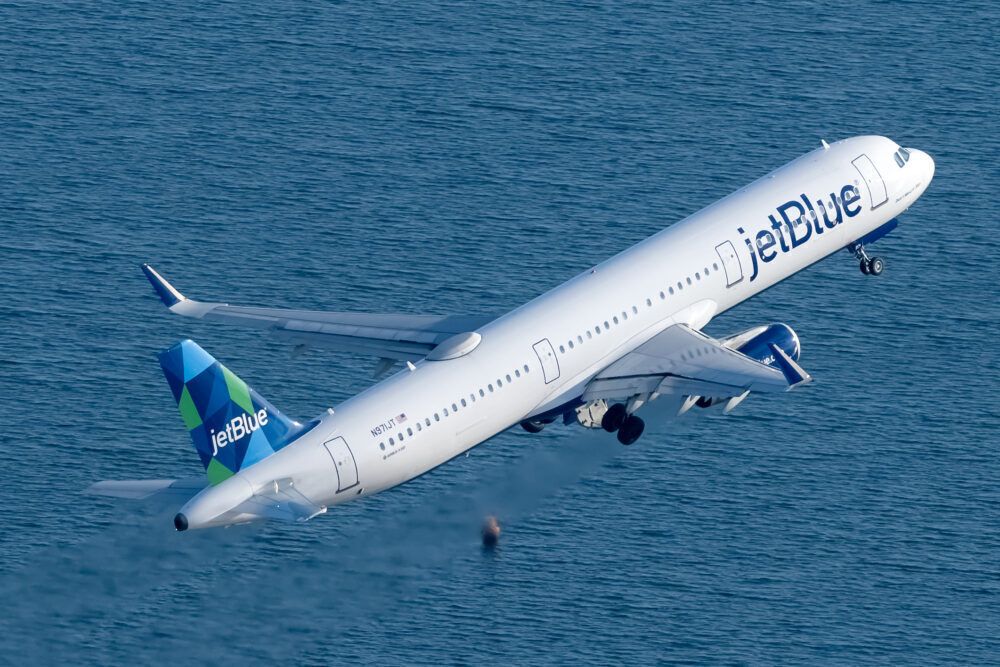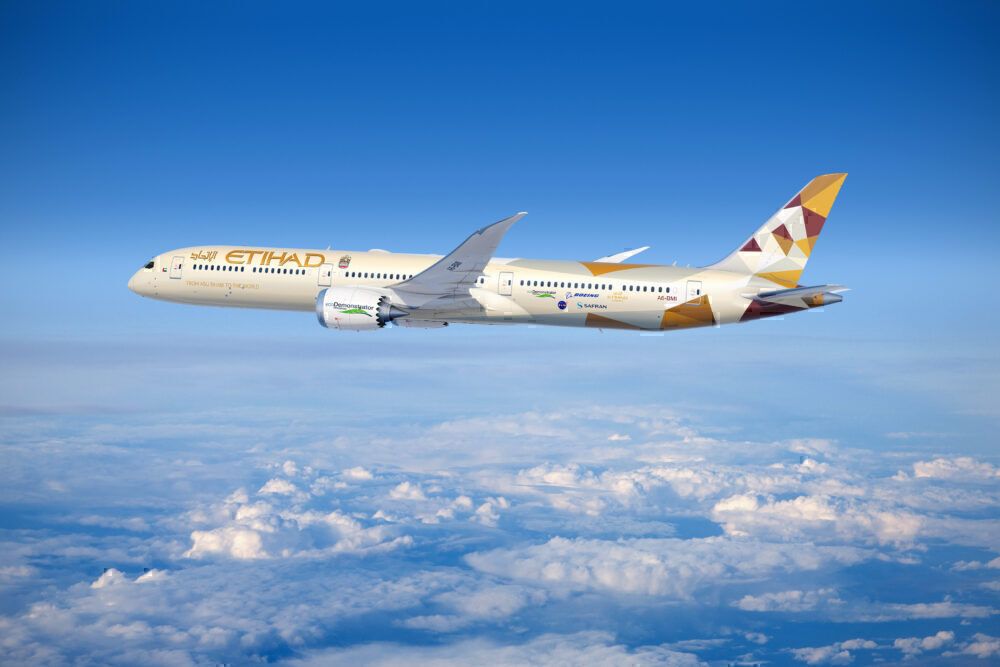JetBlue announced Monday that it had entered into an agreement with World Fuel Services and World Energy for the supply of Sustainable Aviation Fuel (SAF) at Los Angeles International Airport. The airline says SAF will now make up approximately 5% of its LAX fuel.
On the road to 2040
JetBlue continues its efforts to transition towards lower-carbon operations targeting net-zero CO2 emissions by 2040. The airline's increase in biofuel with the newly minted World Energy deal and the launch of SAF-powered flights from LAX earlier this month will amount to 1.5 million gallons of blended SAF a year for at least three years.
“Sustainable aviation fuel is one of the most promising ways to rapidly reduce air travel emissions and help our industry move toward our net-zero goals. We are focused on growing our use of sustainable aviation fuel to replace conventional fossil-based jet fuel in our focus cities as it becomes available," said Sara Bogdan, JetBlue's Director of Sustainability and Environmental Social Governance, in a statement.
Bogdan also pointed out the much-debated fact of the traditional lack of policy support for sustainable aviation fuels. However, she said JetBlue was excited about the prospect of additional government strategies and that the scaling of SAFs would help usher in a low-carbon future for the industry. JetBlue has been operating SAF-powered flights out of San Francisco (SFO) since August last year, with biofuel supplied by Neste.
Stay informed: Sign up for our daily and weekly aviation news digests.
Biofuels from agricultural waste
Fuel producer World Energy is called the 'industry's first commercial-scale producer of SAF'. The biofuel that the clean energy provider will bring JetBlue at LAX comes from its facilities in Paramount, California. The company also operates plants in Texas, Mississippi, Georgia, Pennsylvania, Massachusetts, as well as two in Ontario, Canada.
“JetBlue is taking aggressive action utilizing tools available today to deliver on their net-zero carbon emissions goals,” said Bryan Sherbacow, Chief Commercial Officer for World Energy. “Expanding commercial use of sustainable aviation fuel is critical in changing the industry’s carbon outcomes," he continued.
World Energy's biofuels are made from inedible agricultural waste and certified by the Roundtable on Sustainable Biomaterials, an international multi-stakeholder initiative monitoring the sustainability of biomass production. Meanwhile, World Fuel Services' Senior VP for Supply and Trading, Brad Hurwitz, stated that his company has delivered more than 22.1 million gallons since 2014.
World Energy and the ecoDemonstrator
World Energy provides SAFs to Boeing through supplier EPIC fuels. In collaboration with Etihad, the trio operated a 787-10 Dreamliner transcontinental flight with a 50/50 blend of SAF and traditional kerosene jet fuel in September last year under the manufacturer's ecoDemonstrator program. The plane entered service with Etihad a couple of months later.
When do you think sustainable aviation fuels will become commonplace at airports worldwide? What kind of policies do we need to see for that to happen? Leave a comment below and tell us your thoughts.



